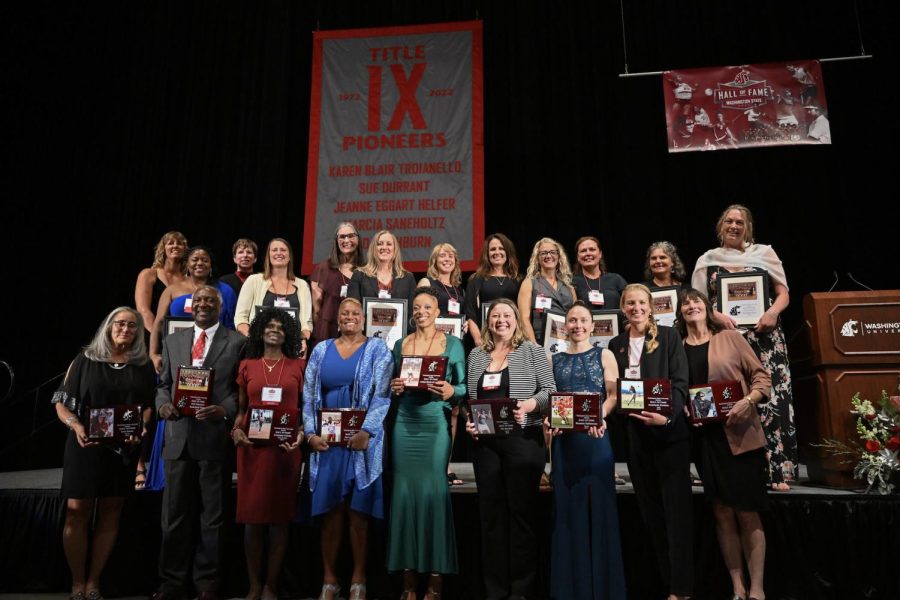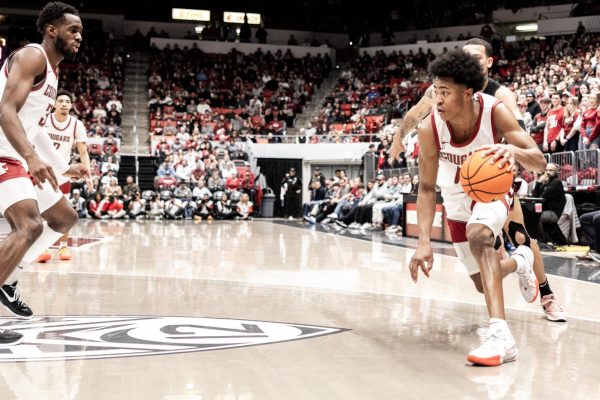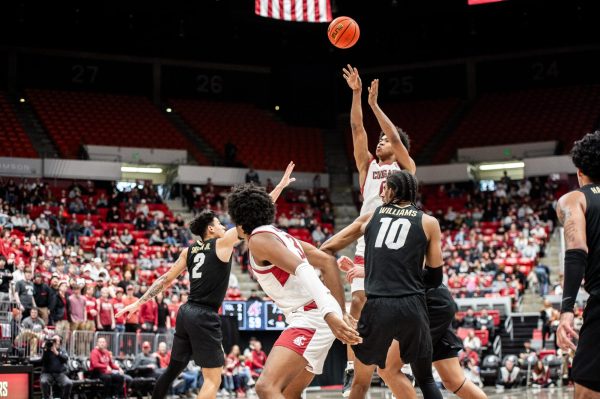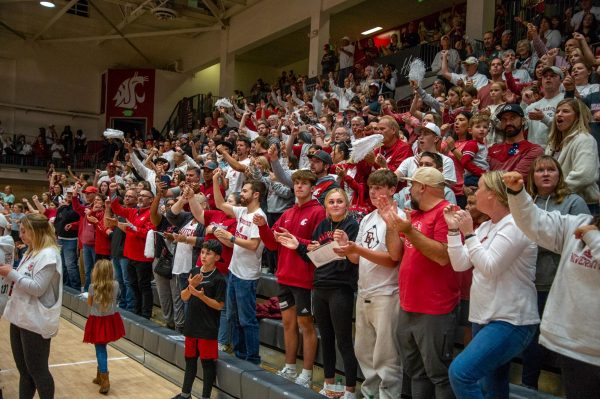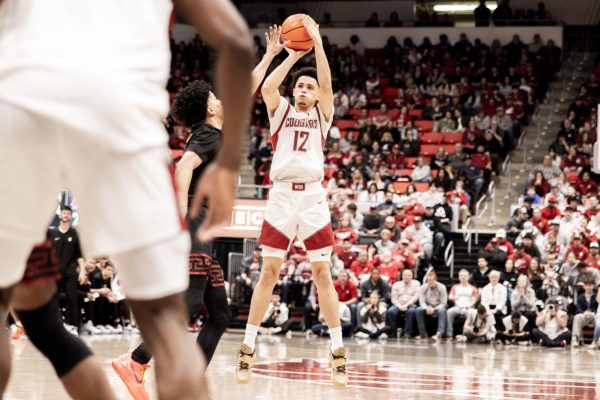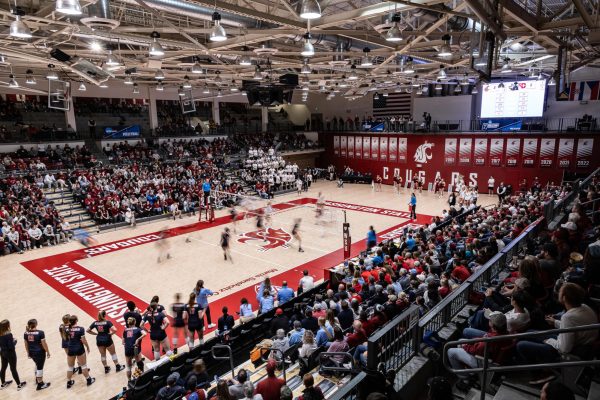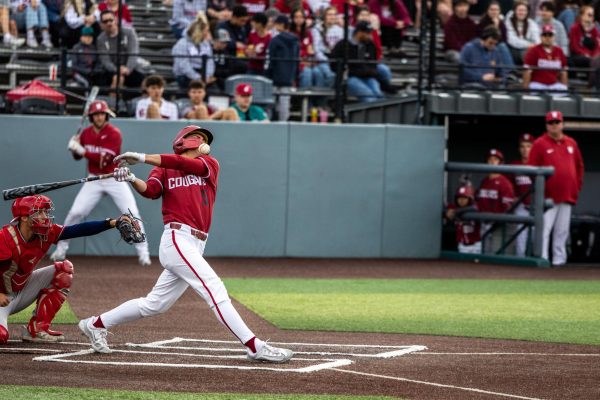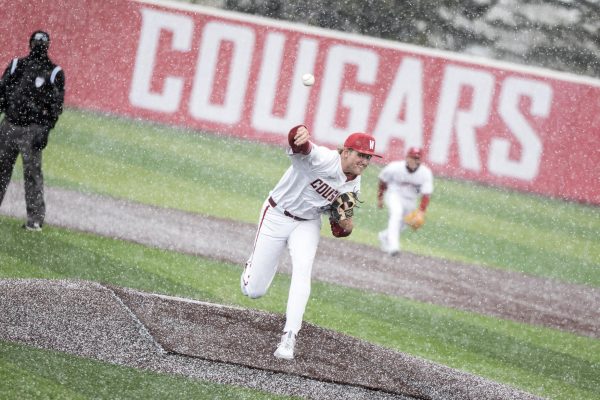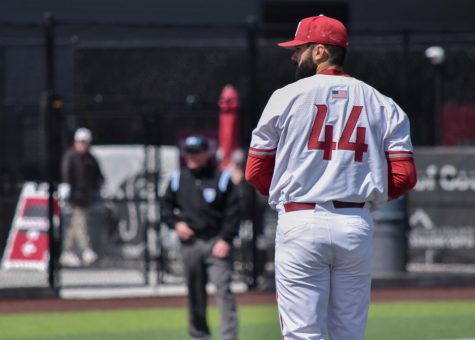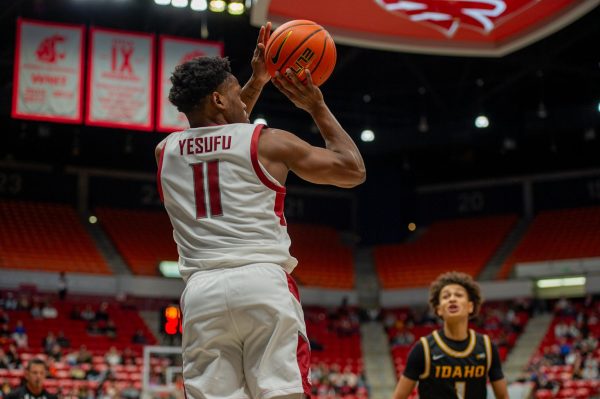WSU inducts all-female class to Hall of Fame
Five decades after Title IX, WSU honors star athletes from years past
WSU Athletics inducted eight individuals and the 1991 women’s basketball team as part of their first all-female class on Sept. 16, 2022.
September 22, 2022
Fifty years ago, Congress enacted the Education Amendments of 1972. Likely the most famous of these amendments was Title IX.
Title IX, among other things, made it so that schools had to have an equal number of men’s and women’s sports programs, leading to a large increase in accessibility for female athletes at every level. One of the institutions at the center of Title IX was WSU, and many Cougars were part of the push for change.
Five decades since that landmark case, the WSU Athletics Hall of Fame has inducted its first-ever all-female class. Cougar sports legends stretching back decades were honored at Beasley Coliseum on Friday. The banquet included cocktails, dinner and speeches from everyone being inducted.
Highlights from speeches will be given below and summaries of the athletes’ accomplishments can be found in this previous Evergreen article.
The first honoree to speak was Eka Burduli, a Cougar tennis legend who achieved many school records in her time in crimson and gray in the 2000s.
She highlighted several factors she attributes her success to, including her husband son and mother.
“She supported me and pushed me against all odds, across several countries and continents,” Burduli said. “Through example, she taught me how to persevere.”
The next to speak was former WSU rowing coach Tammy Crawford, who was the rowing coach from 1990-2002 and made an NCAA Championship in her time at WSU.
She spoke on the importance of female athletic representation.
“I had one woman coach through high school and college, in all my years and I never thought of being a coach myself,” Crawford said. “And I never thought of myself because there was very little representation in my own life.”
Crawford went on to thank Sue Durrant, WSU women’s basketball coaching legend as well as the female athletes who sued the state of Washington for gender equity. She also thanked her husband and fellow coaches.
“This is not a 9-5 job, it is 365/24/7,” Crawford said, speaking not just of her own work but also of those who helped her along the way.
She finished by thanking the athletes and having the present rowers and coxswains that she coached stand to be applauded themselves.
After Crawford came Kiersten Dallstream, who played soccer for the Cougs in the 2000s and went on to have a pro career. Her speech was short and she thanked her family, teammates through the years, her coaches and her “poor professors who had to deal with [her] missing so many classes.”
The fourth speaker was volleyball star LaToya Harris-Alexander. She thanked her sister for supporting her and pushing her to play volleyball when she was young. She credits that with starting her on the path to being a Hall of Famer.
She also thanked her mother, who she said never missed one of her games, as well as her aunt and her grandmother, all of whom offered her support in critical ways along her path. Harris-Alexander credited coaches throughout her life with getting her to this point as well.
Next to speak was Lisa Fraser, the first coach of WSU women’s soccer. She shared a story about the team selling programs at a men’s basketball game in order to fundraise.
“You would never have seen a men’s coach selling programs at a basketball game, but we did it. We needed to do it, it was important to us,” she said.
She thanked her athletes, many of whom were present, as well as her husband.
After her was Anastasia Kostina, who golfed for WSU after being recruited from Russia. She thanked WSU, the athletic department and her coaches from when she was here at WSU for creating a great supportive atmosphere throughout her time here in what was a foreign country.
She also thanked her family, especially her sister who came to Pullman before her and who she credits with being the reason she was recruited.
Next up was Celestine N’Drin, who raced at WSU while in her prime as an Olympian in middle-distance races for the Ivory Coast. She thanked her coaches for taking care of her at every step of her journey. She congratulated and thanked everyone who supported her for the part they had in her success.
Last of the individual athletes was Georgette Reed, who started as a swimmer and through an unlikely turn of events ended up as an Olympic shot put thrower representing Canada. She thanked her coaches, teammates (including fellow inductee N’Drin) and mentors that kept her on track and moving towards her dreams along the way.
Georgette Reed’s father, George Reed, was also a Hall of Famer from his days with Cougar football and she thanked the Hall for letting her fulfill her dream of being up there with him.
The final inductee of the night was the entire 1991 women’s basketball team, who made the national championship that year after many injuries and other trials. Speaking for the team was the head coach at the time, Harold Rhodes, who thanked the team for bonding together and being strong against adversity, as well as his assistant coaches.
He called up Kristen Metson, who was the leading scorer for the team. Metson thanked her coaches, teammates and the women who pushed for Title IX and created the opportunities she and her teammates had.
Videos of all speeches and highlight videos shown at the event can be found on the WSU Athletics YouTube page.

